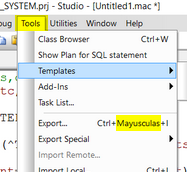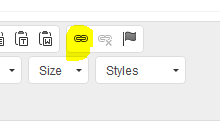Kenneth, I don't think you are correct here. Apart from invalid syntax you gave, even with the correct syntax the routine is fetched from the specified namespace and executed in the current namespace. See the following example using a simple test routine (YJM) that I created in my USER namespace and then executed from my SAMPLES namespace:
USER>zl YJM zp
YJM w !,"Runs in ",$namespace,! q
USER>d ^YJM
Runs in USER
USER>zn "SAMPLES"
SAMPLES>d ^YJM
D ^YJM
^
<NOROUTINE>^YJM *YJM
SAMPLES>d ^|"USER"|YJM
Runs in SAMPLES
SAMPLES>w $zv
Cache for Windows (x86-64) 2017.2.1 (Build 801U) Wed Dec 6 2017 09:07:51 EST
SAMPLES>d ["USER"]YJM^YJM
D ["USER"]YJM^YJM
^
<SYNTAX>^YJM
SAMPLES>
- Log in to post comments




